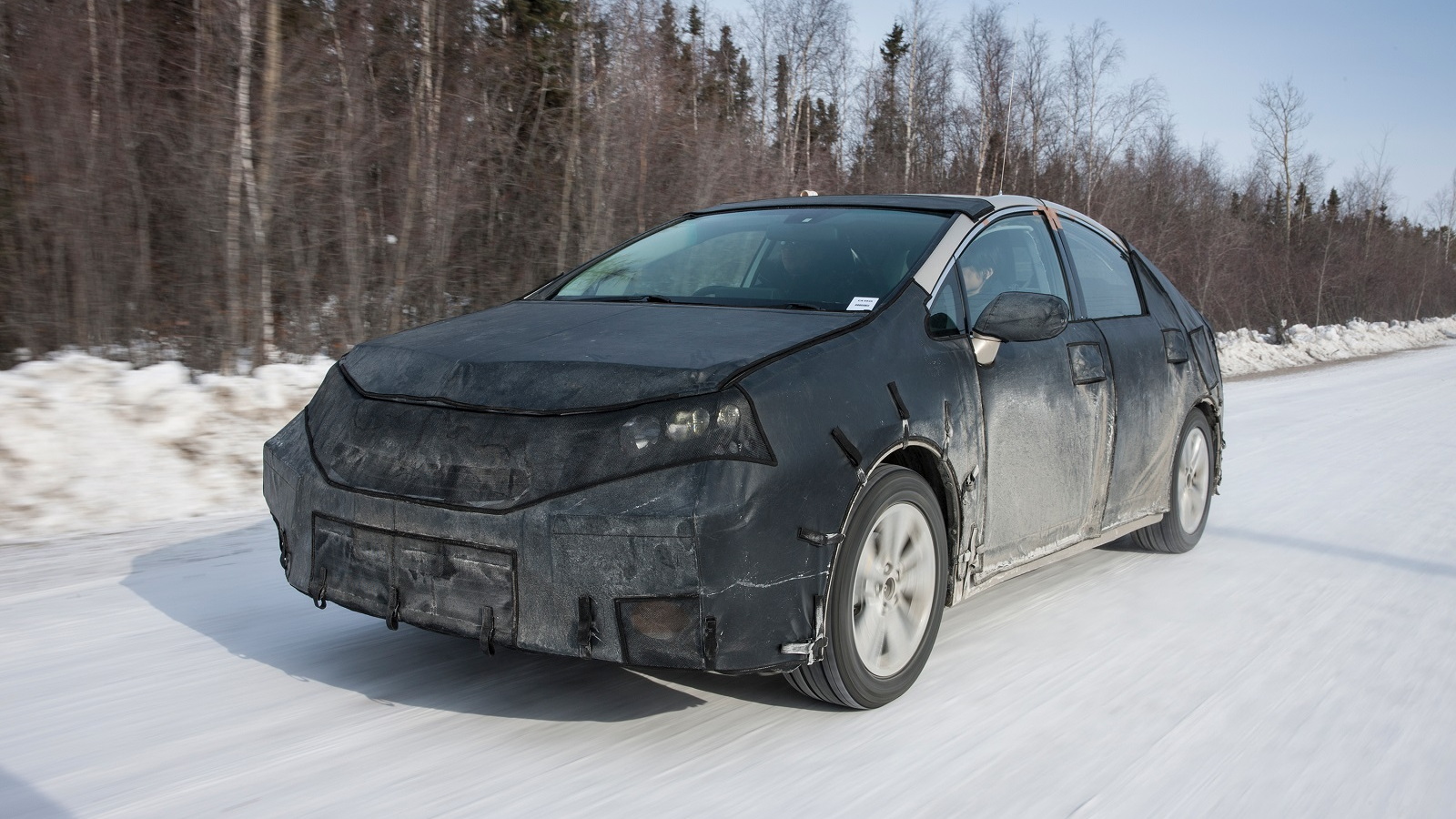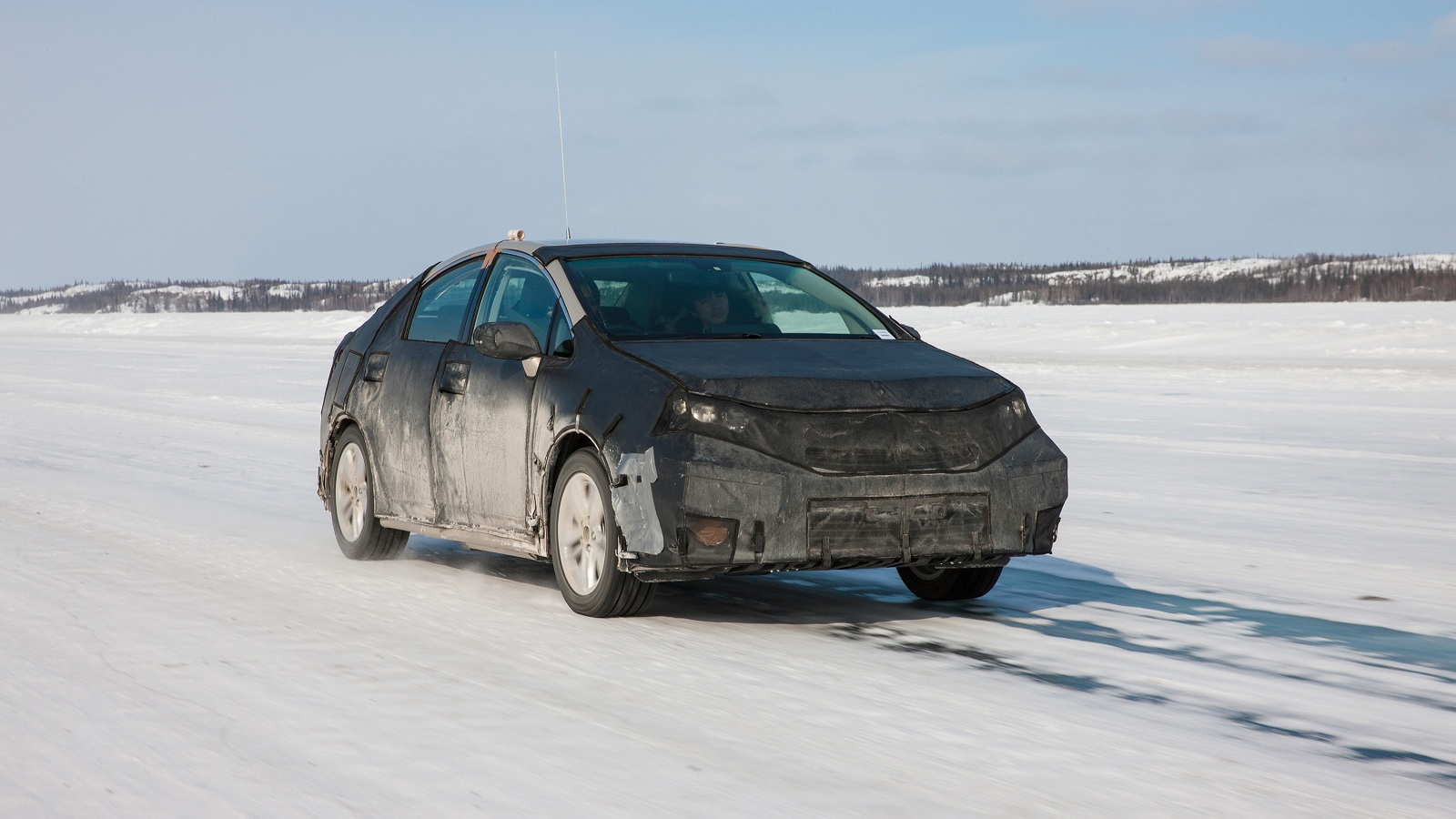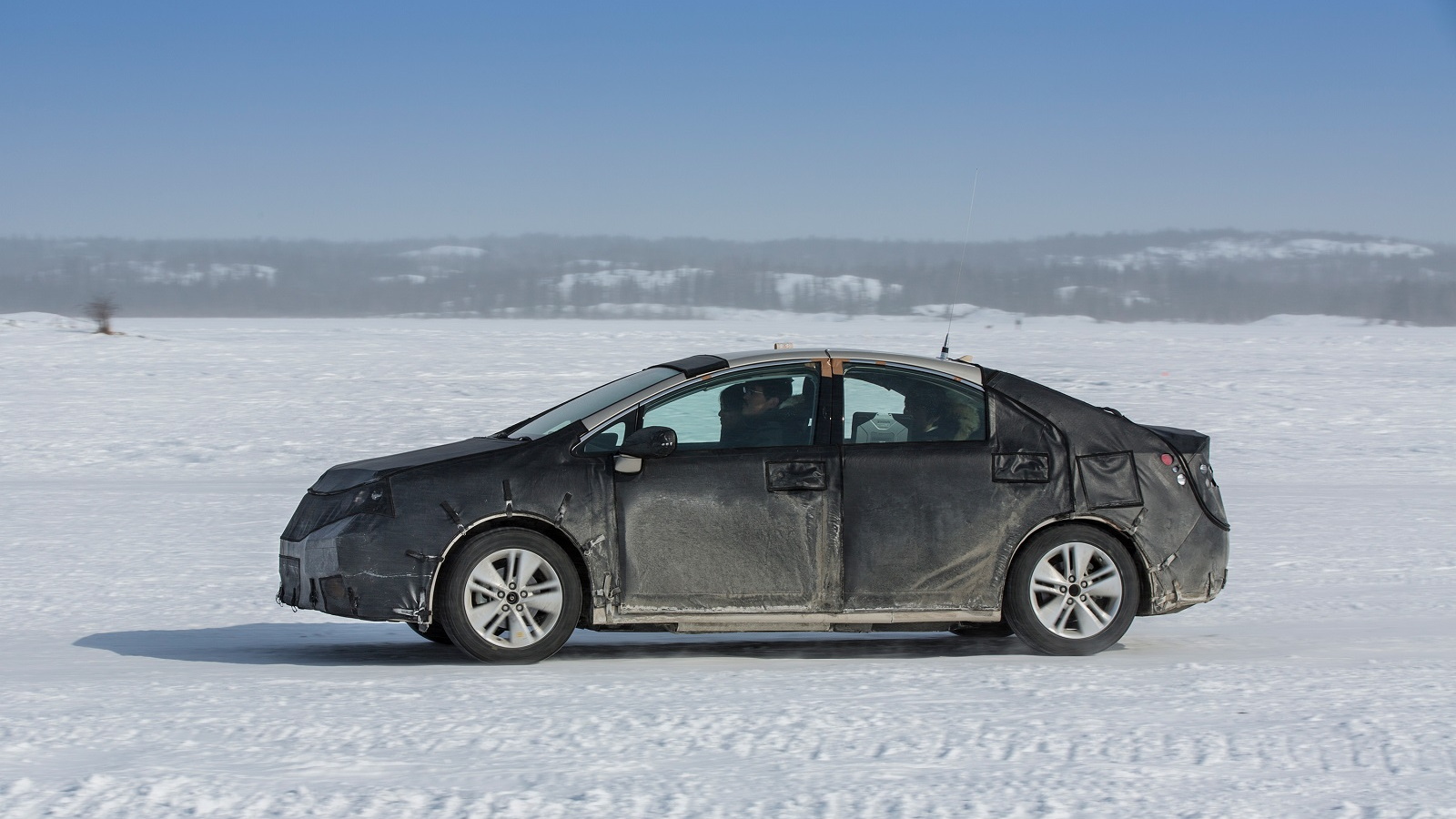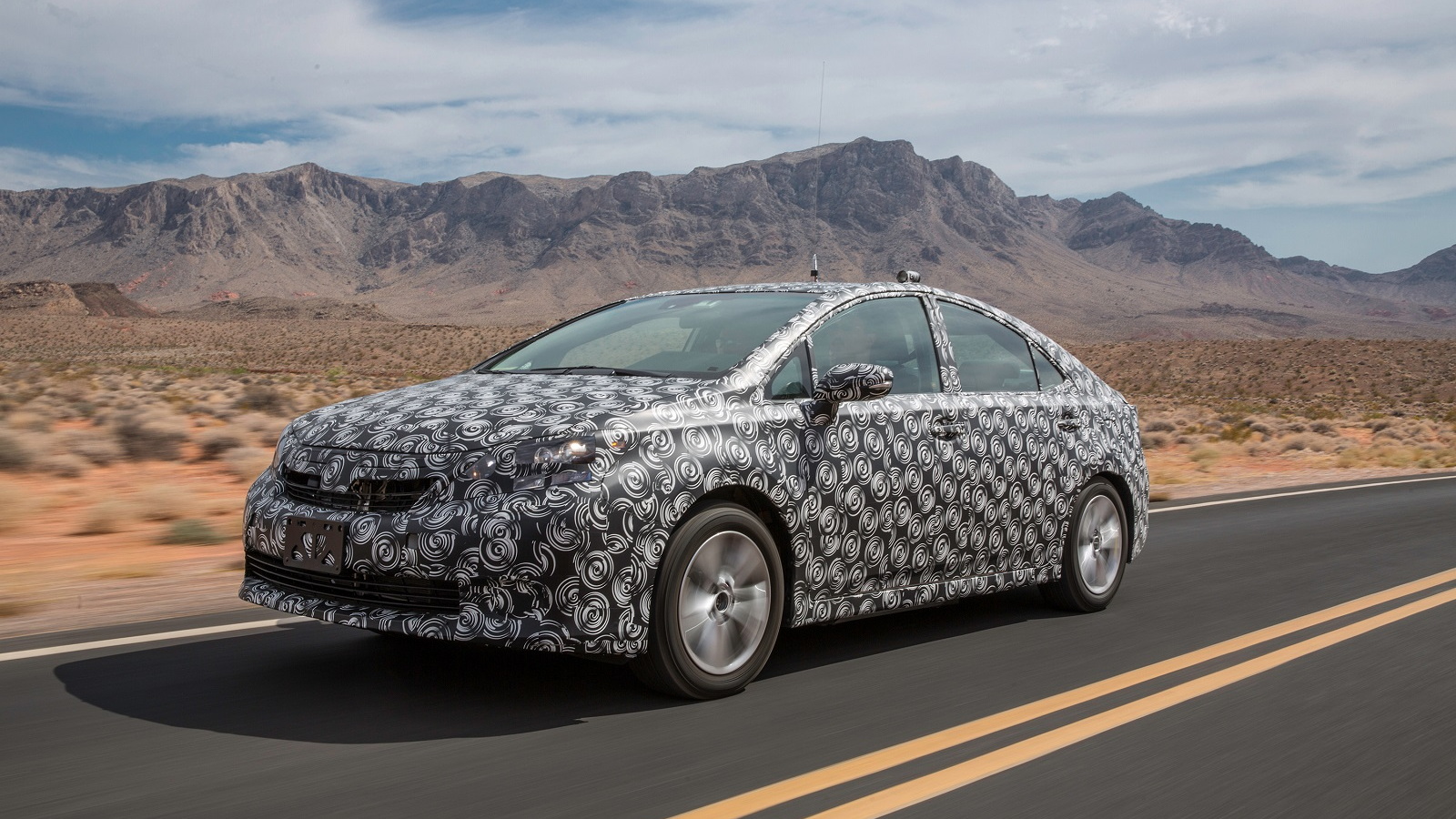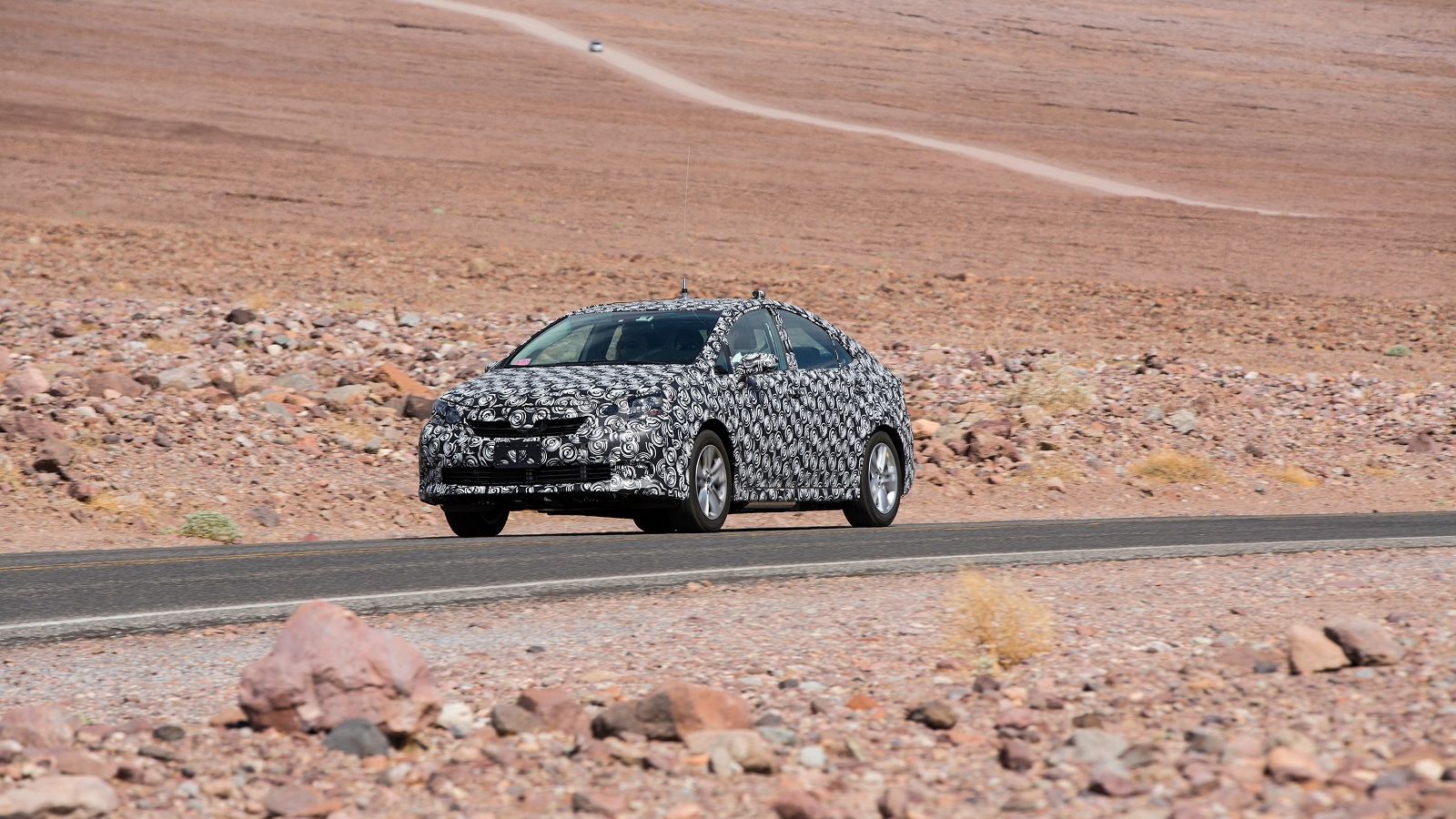Toyota revealed a bit more about its plans to offer a hydrogen fuel-cell vehicle for sale next year, at a press event held today at the opening of the huge Consumer Electronics Show in Las Vegas.
The company sounded a confident note on the prospects for electric vehicles that use power generated not from the utility grid, but by combining hydrogen with oxygen in fuel cell to produce electricity and water vapor.
MORE: Hydrogen Fuel-Cell Cars To Come From Toyota, Hyundai, Honda
"Fuel-cell electric vehicles will be in our future sooner than many people believe," said Bob Carter, Toyota's senior vice president of automotive operations, "and in much greater numbers than anyone expected."
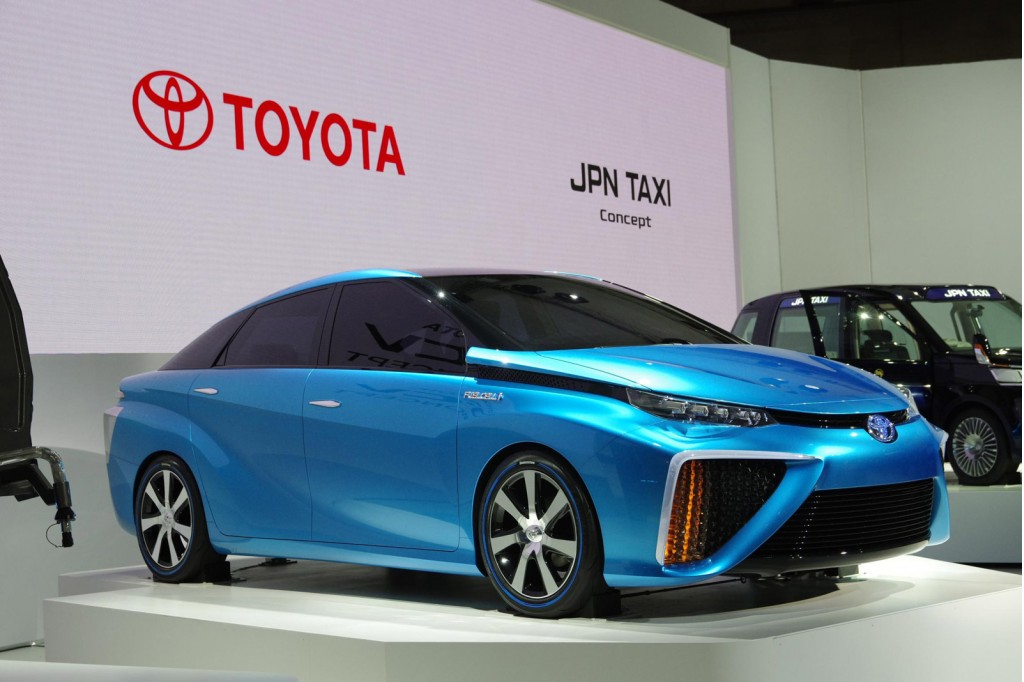
Toyota FCV concept, 2013 Tokyo Motor Show
Concept and test prototype
The company showed two vehicles on stage with Carter. One was the Toyota FCV Concept unveiled two months ago at the Tokyo Motor Show, a mid-size four-door sedan with aggressive front styling.
That concept car was the latest update on the Toyota FCV-R Concept shown two years ago at the 2012 Detroit Auto Show.
The other fuel-cell car on display was a prototype test vehicle, covered in camouflage patterns to disguise its lines, that had already racked up tens of thousands of miles of on-road testing in North America over more than a year.

Toyota FCV concept, 2013 Tokyo Motor Show
That prototype, the company said, has delivered 300 miles of range consistently from a full tank of hydrogen.
The fuel cell provides consistent power output of 134 horsepower (100 kilowatts) or more, producing 0-to-60-mph acceleration times of roughly 10 seconds. A full refill of its hydrogen tanks will take 3 to 5 minutes, Toyota said.
Nodding to challenges
Carter acknowledged skepticism about the prospects for hydrogen-fueled cars in his speech to the CES audience, noting that the use of hydrogen to power an electrically-driven car "has been seen by many smart people as a foolish quest."
But, he said, while there are "significant challenges," Toyota has invested a "massive" amount in R&D for hydrogen fuel cells.
The company has tested prototypes since 2002, covering more than 1 million miles on hydrogen power. The fuel cell and hydrogen tanks of the vehicle that it will launch in 2015 cost a mere 5 percent of their cost back in 2002, Carter said.

Toyota FCV hydrogen fuel cell vehicle prototype during hot-weather endurance testing in N America
Few industry analysts disagree that automakers will be able, over time, to build fuel-cell powertrains that can be packaged into modern vehicles.
And with sufficient volume, those powertrains have always been expected to come down in cost dramatically--letting Toyota, as Carter said, build such a car "at a reasonable price for many people."
Infrastructure challenge
The second and likely more substantial challenge, Carter said, is in providing a brand-new fueling infrastructure from the ground up.
And he pledged that the company is "doing what we can to help kick-start the construction of convenient hydrogen refueling infrastructure."
The success of any hydrogen vehicle, he said, will depend "less on the genius of the car than on the ownership experience."
"Cost is one thing, " Carter noted, "but convenience is another."
$200 million for fueling
Carter reeled off a list of partners in bringing hydrogen stations to fruition in California, where the first such vehicles will be sold in the San Francisco Bay Area and Silicon Valley up north, plus Los Angeles, Orange County, and San Diego County in the southern part of the state.
A model developed by the University of California-Irvine suggests that only 68 hydrogen stations in those areas, if optimally placed, could fuel a population of up to 10,000 fuel-cell vehicles
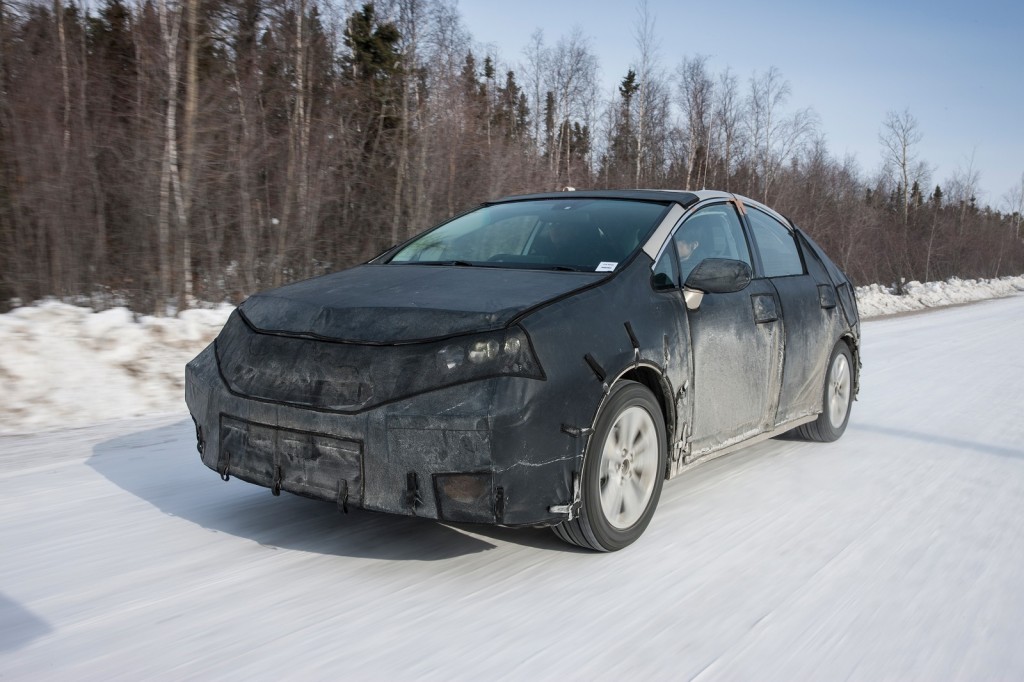
Toyota FCV hydrogen fuel cell vehicle prototype during cold-weather endurance testing in N America
The model includes data on local travel patterns, vehicle ownership data, population density, and the assumption that owners want to be no more than 6 minutes away from a fueling station.
The state of California has allocated $200 million to develop 20 hydrogen stations by 2015, 20 more the following year, and up to 100 by 2024.
“Stay tuned,” Carter said confidently, “because this infrastructure thing is going to happen."

Toyota FCV concept, 2013 Tokyo Motor Show
Details to come
Calling Toyota's efforts to date in both engineering cost reduction and infrastructure development a "good job," Carter pledged that Toyota's first production fuel-cell vehicle will launch in North America during 2015.
He did not reveal its model name, specifications, performance data, or sales volume targets.
He did say, however, that Toyota has asked Japan to supply it with more hydrogen vehicles than originally planned as its U.S. arm revises its market plans with the launch getting closer.
And he noted that Toyota engineers are working on a power-out feature that could allow a fully-fueled hydrogen car to power an entire house for up to a week in the event of a power outage or other emergency.
The company will provide some of that information in the weeks and months ahead, he said.
_______________________________________________
